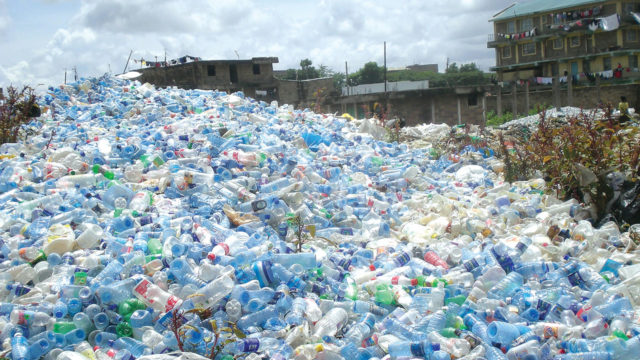By Oghale Mafuru
Waste management, especially plastic wastes, has been a huge concern with a record of over 8 million pieces of plastic waste finding their way into waterways daily. The world produces 381 million tonnes in plastic waste yearly and it is expected to double by 2034.
This increasing concern of the devastating impact of waste on the environment has made multinationals, especially those in the Fast Moving Consumer Goods (FMCG) sector, devise innovative ways of reducing the amount of waste that emanates from them in the form of plastics.
Of the 1.6 million tonnes of domestic waste disposed of in 2018, one-third is made up of packaging. More than half of this packaging is made of plastic, but only 4% of plastic waste is recycled.
Although everyone is accountable for the contribution to the waste build up, large corporations have incorporated sustainability initiatives into their Corporate Social Responsibility (CSR), while others are leading the conversations for effective waste management.
For instance, in 2018, Coca-Cola launched ‘World Without Waste’ with focus on making the world’s packaging waste problem a thing of the past. The carbonated drinks giant hinged the initiative on three fundamental goals which are to make 100% of its packaging recyclable globally by 2025”, and use at least 50% recycled material in its packaging by 2030; collect and recycle a bottle or can for each one it sells by 2030; and work together to support a healthy, debris-free environment.
Reiterating its commitment to waste management, Coca-Cola, on its website, stated: “Like many companies that make products we all love, our packaging has contributed to the global packaging problem and we are taking action to help solve this challenge. We’re bringing people together and investing in recycling infrastructure and our packaging to create a World Without Waste.”
Commenting on waste management, Marketing Director of Coca-Cola Nigeria, Mr. Gbolahan Sanni said: “Brand sustainability is a big part of what our company stands for. Waste and managing waste plastics are a big part of that and we utilize the Design, Collect and Partner approach in the collection and recycling of wastes.
“As part of efforts to encourage consumers to be more responsive in waste recycling, the company issued a recycling call-to-action with powerful message inscriptions on its bottles like ‘I can become another bottle when you recycle me. Thanks’, “Recycle me again. I am made of 100% recycled plastic. Made in Sweden.”
Another leading FMCG company, Unilever has also been at the forefront with its campaign for effective waste management. Unilever with its “Rethinking plastic packaging” is poised to provide a solution to the problem of waste. The company said: “Playing our part in a waste-free world means rethinking how we design our products and packaging. We’re reducing materials right from the start, and making them easier to recycle or reuse”.
Demonstrating its commitment to plastic waste management, Nestle initiated the ‘reimagine packaging and rethink recycling’ system which is built on a five-pillar approach.
Nestlé said: “We are helping to solve this environmental issue: by reducing our use of packaging material; scaling reusable and refillable systems; using new and recyclable materials for packaging; investing in waste management infrastructure and finally, working with consumers and society in general to encourage responsible behaviour.
“We’ve already launched 100% recyclable paper packaging for a number of products, including Nesquik pouches, YES! Snack bars and in January 2021, Smarties became the first global confectionery brand to switch to recyclable paper packaging.’
Nestle has also adopted the use of paper straw packaging, the recent being the MILO Ready-To-Drink (RTD) packs.
Environmental challenges are rising and it is worsened by plastic wastes. It is a good sign that multinationals are committed to environmental initiatives that are focused on the reduction of plastic wastes.






Comment
No comments found.